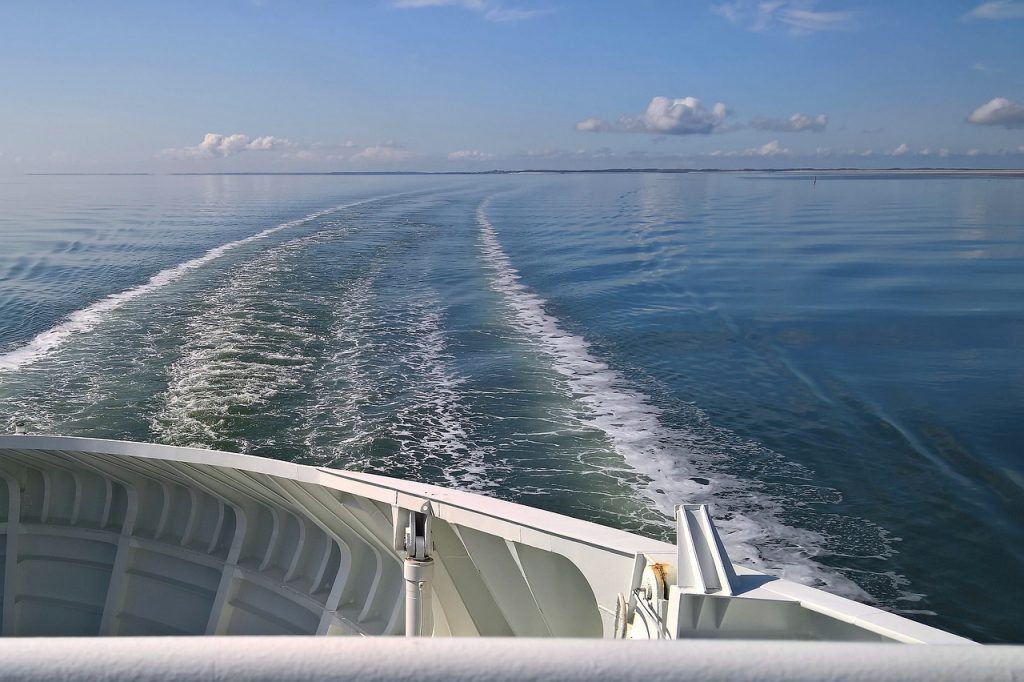Home Secretary Priti Patel wants to allow the UK Border Force to turn back migrant boats carrying people across the English Channel.

According to a government source, the tactic will only happen in “very certain, narrow circumstances”, and details are not yet final. However, the move raises questions over whether it will break international maritime law.
France will probably oppose the plans because “safeguarding human lives at sea takes priority”.
On Wednesday, Ms Patel met with French counterpart, interior minister Gérald Darmanin, to discuss the migrant crisis. But the two sides could not come to an agreement on any new measures.
Following the meeting, some newspapers report that the government is considering letting Border Force officials turn migrant boats away. The government is apparently agreed on the potential idea, but how it will operate still needs finalising.
However, France feels that the idea is dangerous and contravenes international maritime law. The law states that people at sea must be rescued if they are at risk of losing their life.
The migrant crisis
In recent months, increasing numbers of migrants are crossing the English Channel. Over 1,500 migrants have crossed by boat so far this week, with a record number making the journey on Saturday. And so far this year, over 12,600 migrants have journeyed across the Channel.
The English Channel is one of the busiest and most dangerous shipping lanes in the world. It sees a lot of migrants coming from poor and chaotic parts of the world. Many of these request asylum following pick up by the UK authorities.
The UK government knows it needs to use every possible tactic it can to tackle the issue of people smuggling. In July, a deal was struck with France in an attempt to reduce the number of migrants crossing over. The UK promised to pay France £54.2m for additional action such as increasing coastal patrols.
The Immigration Services Union (ISU), which represents borders, immigration and customs staff, says although the tactic was previously used in the Mediterranean, it hasn’t been done in the English Channel before.
However, the ISU’s Lucy Morton doesn’t think the tactic will come into use at all, she calls the idea “dead in the water”. She explains how there are a lot of restraints surrounding it, which means it can’t happen “with a vessel which is in any way vulnerable”. But most importantly, for the plan to go ahead it needs consent from France. Turning the vessel back towards France, means they will have to step in and rescue it when it crosses over to their side. This is not an idea the French want to engage in.
Ms Patel has allegedly secured legal advice to allow the redirection of small boats away from British waters.
What is the priority?
Each country has its own allocated search and rescue zones. Migrants found in UK national waters will most likely be taken to a British port. If they are in international waters, the UK and French authorities work together to decide where they should go. Under an EU law, asylum seekers are transferred back to the first member state they entered. However, the UK are not part of the arrangement anymore, and do not have a new scheme in place.
Ms Patel says she had constructive talks with the French minister. She claims to have made it “clear that delivering results and stopping crossings were an absolute priority for the British people”.
However Mr Darmanin sent a letter to Ms Patel before their meeting. In it he wrote that the French hadn’t changed their position on interception. He says that employing turn-around tactics “would risk having a negative impact on our co-operation”. The French minister stresses the importance of safeguarding human life and how it takes “priority over considerations of nationality, status and migratory policy, out of strict respect for the international maritime law governing search and rescue at sea”.
Mr Darmanin acknowledges an increase in the number of people crossing the Channel, but says it is down to people smugglers using larger boats and tactics such as decoys.
“A more humane and responsible approach”
Meanwhile, Calais MP Pierre-Henri Dumont says, owing to the size of France’s coastline, “nothing” can stop the small boats crossing. There is around 300 to 400 kilometres of shore that needs monitoring all day and night. It is an impossible task to have police officers everywhere because of the shear length of the shoreline.
Charities urge the Home Office take a “more humane and responsible approach” towards asylum seekers. Amnesty International UK say people have a right to seek asylum in the UK. The charity believes that people “only make dangerous journeys and rely on smugglers because there are no safe alternatives made available to them”.
The Home Office is continuing to evaluate and test different options that are safe and legal, to find ways to stop small boats making the trip across the Channel.
Thank you for reading Migrant boats on English Channel could be turned back in new UK move

Looking for additional living space or somewhere quiet to work from home? Look no further – Log cabins at affordable prices.